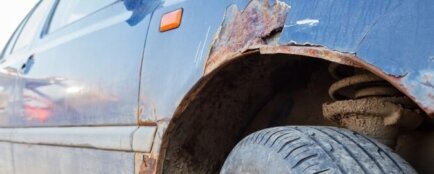What about damage caused intentionally or after quenching thirst with a hoppy drink during working hours? Can an employee agree in advance to indemnify the employer? And in which case is the employee liable for compensation?
The Labour Code always refers to the employee and the employer in relation to the employee’s liability for damages. However, do not be confused by this, as an employee is also considered to be a natural person who concludes a work performance agreement with the employer. Therefore, compensation to the employer is not excluded in this case either.
As stated above, the employee is liable for compensation to the employer only to a limited extent. It must always be damage caused culpably and in connection with work-related acts.
For example, if an employee inadvertently knocks over an important fibre-optic cable on a construction site, his employer must pay the full amount of damages to the injured party, including any loss of earnings. However, the employee can only recover a maximum of 4.5 times his average monthly wage, no matter how high the damage is.
If the employer also caused the damage, the employee shall only pay a proportionate part of the damage according to the degree of his fault. If more than one employee is liable for the damage, each of them shall bear a proportionate part of the damage according to the degree of his or her fault.
Further exceptions are provided for in agreements governing so-called material liability or liability for entrusted objects. These are discussed below.
However, how is the amount of damages an employer can claim calculated? Damage under the Labour Code is the actual reduction of the property of the employer to whom the damage has been caused.
Thus, for example, it is possible for an employer to claim from an employee the cost of repairing damaged machinery or equipment, but only if such costs would not have been incurred by the employer – but for the harmful event. For example, if a maintenance worker regularly comes to repair the machine in question, then the employer cannot claim the cost of that maintenance worker from the employee.
Tip for article
Tip: In its ruling, the Constitutional Court addressed the relationship between damages and the duty to compensate the employer. It addressed the situation whether a botched organisational change at the workplace and several invalid terminations submitted on the basis of that change should be treated as one or several errors. This has an impact on the application of the employer’s compensation limit.
However, employee liability is not always that simple and there are some exceptions. For example, the four and a half times limitation does not apply if the damage was caused intentionally, while drunk, or after the use of other addictive substances (e.g. marijuana). However, the employer must prove this. This can be done, for example, by calling witnesses from the “wet district” when the employee admits to his colleagues in the evening after his shift that he cut the cable on purpose in order to “embarrass” the employer. In that case, the employee is then liable for the full amount of the damage.
On the other hand, the employee is not liable for damage caused by him in the course of averting damage to the employer or a danger to life or limb which is imminent, if he did not intentionally create the condition and acted in a manner reasonable in the circumstances. However, increased caution is also recommended here. The employee has a duty to protect the employer’s property. Thus, if, for example, an employee rushing home saw strange smoke above the lumber store and did nothing, did not report it, but only mentioned it in the pub in the evening, the employer could indirectly blame him for the damage caused by the fire (here the employee is liable for damages up to three and a half times his average monthly earnings).
Are you solving a similar problem?
They won't pay you compensation?
Have you been injured in a car accident, at work or in sport and the insurance company refuses to pay? Or someone else won’t pay you the compensation you are entitled to? We can help you.
That's what I want
- When you order, you know what you will get and how much it will cost.
- We handle everything online or in person at one of our 6 offices.
- We handle 8 out of 10 requests within 2 working days.
- We have specialists for every field of law.
Damage caused by employees
The employer is also liable for any damage that may be caused to an employee in the course of his or her work or by some other intentional act. Similarly, it is liable for damage caused to an employee by other employees acting on behalf of the employer in breach of legal obligations. An exception is damage to a means of transport used by the employee in the performance of his/her duties without the employer’s consent. The same applies to tools, equipment and articles of the employee necessary for the performance of the work used without the employer’s consent.
However, the employer shall also be liable to the employee for damage to items normally brought to work and left by the employee in the performance of his/her work tasks. However, the employee must exercise the right to compensation no later than 15 days from the date on which he became aware of the damage.
An interesting case was settled by the court some time ago, involving the theft of a car of an employee who used it as usual to travel to work and parked it on the employer’s premises. She put the car keys along with other personal belongings in the assigned locker in the locker room used for changing clothes. It was ransacked. The court held that, for purposes of employer liability for damages caused by the removed items, a personal automobile cannot be considered an item customarily brought to work. An employee is only liable for a personal car that she places on the employer’s premises in an unguarded parking lot up to the amount of £10,000, unless the damage to the car was caused by another employee.
Tip for article
Tip: Car accidents are one of the most common situations in which we deal with compensation to the employer or to a third party, either as the injured party or as the person who caused the damage. What are the relationships between the parties involved and how does the insurance company enter into them? What can you claim and how to proceed in such situations?
The employer is obliged to reimburse the employee for the actual damage. In the case of abandoned items, if the employee brings to work items that he does not normally wear and the employer does not take them into special custody, the employer shall be liable for damages up to CZK 10,000. That was the case with the car in question. If it is established that the damage to the item was caused by another employee or that the item was damaged in the employer’s special custody, the employer is also liable to pay the employee the full amount of the damage. However, it is not enough to have a doorman at the entrance to the premises or cameras at the workplace. That does not count as special custody.
However, if the employee does not report the damage to the employer without undue delay within 15 days of the date on which he became aware of the damage, this right to compensation is extinguished.
Summary
Tip for article
Tip: Have you had an accident at work? What are you entitled to, what is pain and suffering and how is it determined? Is the procedure different if you caused the injury in part by your own breach of duty? And why is your employer allowed to give you notice in connection with an accident at work? We answer all this in our article.
Frequently Asked Questions
What are the rules for employee liability for damage caused by the employer?
The employee is liable only for damage caused by fault in the performance of his/her work. In the case of negligence, the compensation is limited to 4.5 times the average monthly earnings; in the case of intent, drunkenness or drug influence, the employee is liable for the full amount of the damage.
What all falls under employer's damages?
This can include damage to equipment, machinery, deterioration of materials, but also financial loss incurred by the employer as a result of the employee’s wrongful conduct. Only actual damage can be claimed, not normal operating costs.
How does employee liability for damage to a company car work?
If an employee damages a company car, the same rules apply as for other damage – usually a limit of 4.5 times average earnings. However, if he or she acted intentionally, under the influence of alcohol or drugs, he or she pays the full amount of the damage.
What does professional liability mean?
This is a general liability of an employee for damage caused in the performance of his/her work tasks or in direct connection with them. It also includes situations where the employee damages the property of the employer or a third party in the course of work.
How does liability for damages in employment law differ from general civil liability?
In employment law, the employee’s liability is more lenient – it is limited by the Labour Code so that the employee is not exposed to unreasonable consequences. This is why there is the aforementioned limit on damages, which is not the case in civil law for ordinary liability.




